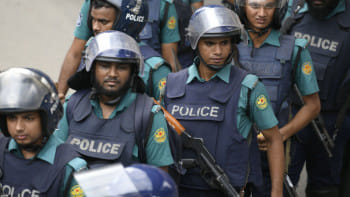Army must prevent any misuse of magistracy powers

The interim government's decision to grant magistracy powers to commissioned army officers for 60 days is an extraordinary measure quite in keeping with these extraordinary times in the nation's life. As per the decision, effective immediately, army officers will act as executive magistrates across the country and be able to exercise the powers that come with this position. With police still largely absent on the streets and lingering concerns about various subversive and criminal activities, the army's involvement in day-to-day law enforcement may seem like a necessary step to restore order. However, it also brings with it critical responsibilities and potential risks that must be managed carefully.
The immediate backdrop to the decision is no secret. The wave of unrest that engulfed the whole country, including the police, following the mass uprising has mostly subsided by now, but concerns remain. We have earlier talked about how low morale within the police force and their diminished capacity are affecting police operations. The decision to grant magistracy powers to army officers aims to fill that gap. These powers, conferred under Section 12(1) of the Code of Criminal Procedure, 1898, will allow army officers to take steps in light of 16 sections of the CrPC, including arresting or ordering arrests of suspected offenders, conducting searches, dispersing unlawful assemblies, and so on. They can also use lethal force in extreme situations.
It is the wide scope of the powers and their potential misuse that have raised some concerns, however. True, granting the army this level of authority is not without precedent. Earlier, magistracy powers were granted during the Operation Clean Heart in 2002 and indirectly during the 2007-08 emergency rule. However, it is crucial to remember that such powers come with a heavy responsibility. We, therefore, urge utmost caution and vigilance in their execution. Going forward, the image and integrity of the armed forces, as well as citizens' trust in them, will largely hinge on the proper and judicious use of their new-found authority. Any misuse could erode public confidence and lead to unnecessary confrontations with civilians.
It is equally important to remember that this is, and must remain, a temporary measure. The deployment of the army with special powers must not be seen as a replacement for the police or civilian authorities, but as a stopgap measure to address an extraordinary situation. The longer the army is tasked with fulfilling these duties, the greater the risk of blurring the lines between military and civilian functions. So, it is vital that the police force be fully operationalised as quickly as possible so that we can return to normalcy.


 For all latest news, follow The Daily Star's Google News channel.
For all latest news, follow The Daily Star's Google News channel. 










Comments